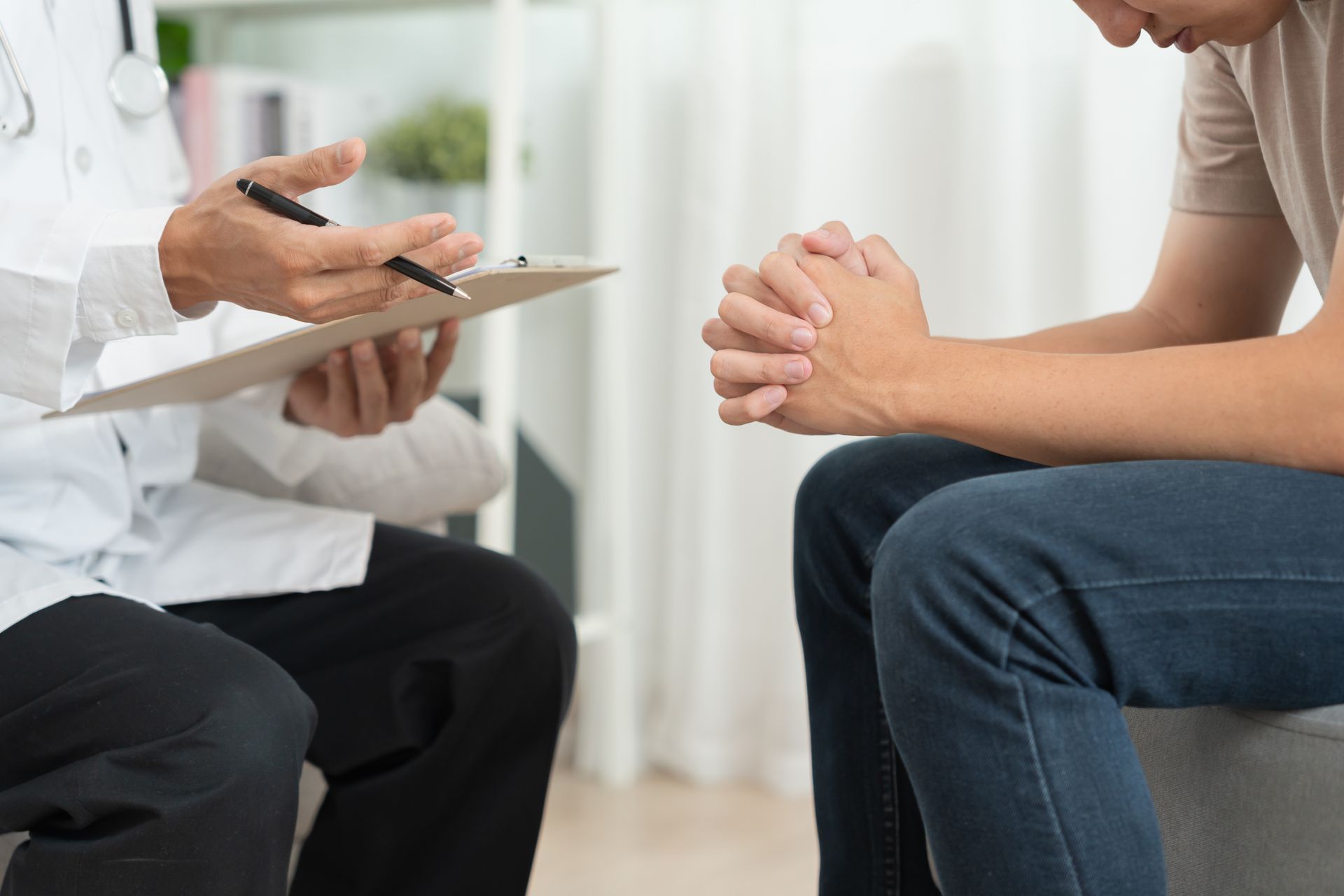How to Find the Right Online Psychiatrist for Your ADHD

It might be intimidating, stressful, and mildly frightening to seek therapy. How will they question me? What will I think? Do I have to explain everything to them? What if I experience discomfort? Frequently, what prevents us from scheduling that first visit are the questions we ask ourselves. However, when it comes to controlling our mental health, professional counseling is frequently the missing piece. In certain cases, the greatest psychiatrist for you might be online.
Today, we’ll discuss what ADHD is and go over how you can find the right online Psychiatrist to fit your needs.
- What is ADHD?
- Difference Between Online Psychiatry vs In-Person
- How Do You Know If They’re a Good Fit?
- What’s the Best Way to Express Yourself
- Can a Psychiatrist Tell How I am Feeling Through a Computer
- Final Thoughts
Let’s Begin!
What is ADHD?
One of the most prevalent mental illnesses affecting children is attention-deficit/hyperactivity disorder (ADHD). Inability to maintain focus, excessive movement that is inappropriate for the environment, and impulsivity are all signs of ADHD (hasty acts that occur in the moment without thought). ADHD is seen as a chronic and crippling condition that negatively affects a person's ability to operate on a daily basis as well as their ability to succeed in school and at work (Harpin, 2005). When left untreated, ADHD in youngsters can result in low self-esteem and poor social skills (Harpin et al., 2016). Adults with ADHD may suffer low self-esteem, sensitivity to criticism, and excessive self-criticism, which may be caused by receiving more criticism overall (Beaton, et al., 2022).
ADHD is thought to affect 2.5% of adults and 8.4% of children (Danielson, 2018; Simon, et al., 2009). In school-aged children, ADHD is frequently initially discovered when it causes disruptions in the classroom or issues with homework. Given that the symptoms manifest differently in boys and girls, it is more frequently diagnosed in boys. This does not, however, imply that boys are more susceptible to having ADHD. Girls typically exhibit inactivity, but boys typically exhibit hyperactivity and other externalizing characteristics.
Difference Between Online Psychiatry vs In-Person
There are parallels and distinctions between in-person treatment and online counseling. The main difference is in the way you talk to your psychiatrist. In-person treatment often entails having 50- or 1-hour appointments in an office (frequency can vary depending on your specific needs). With online therapy, you can frequently contact your therapist whenever you want by text, audio, or video messaging. Regular live video sessions may be possible and conveniently accessible from practically anywhere, depending on your plan and insurance.
How Do You Know If They’re a Good Fit?
Whether you see a psychiatrist in person or virtually, they all have different specialties and provide various forms of treatment. The best way to learn what to anticipate from your therapist is to inquire about their training, method, and areas of specialization.
It can be really challenging to find the perfect fit; it may require some trial and error. Because psychiatrists are also people, they might not share your values, needs, or goals. That's fine too! Find a professional that specializes in treatments that are appropriate for your requirements and is perhaps going through a similar stage of life as you are (so they can connect to some of the experiences you have). It also helps if they have fans, testimonials, or other customers who support their expertise.
Start posing some significant questions to yourself after the first few sessions, whether they were live or recorded. Does your therapist speak less than she listens? Is this someone who attempts to "walk in your shoes" and shows empathy? Do you think they are flexible and open-minded? Clients should be encouraged to take the initiative during therapy sessions, therefore it's crucial that your psychiatrist acts as a kind mentor, facilitator, and guide while you work toward your objectives. They might not be a good fit if they dominate the conversation, respond without empathy, or show a lack of openness
What’s the Best Way to Express Yourself
You don’t need to change your approach. The best way to express yourself to a psychiatrist is by being yourself. Everyone expresses their emotions in a unique way. Some people believe that the finest ways to communicate emotions are through spoken word, music, movement, and art. One of the best things about online therapy is that it enables you to express your emotions to your therapist using these tools and more. Sending your therapist memes, movies, and music that speak to you can help to establish a rapport. When communicating what's on your mind, it's crucial to always move at your own pace.
Can a Psychiatrist Tell How I am Feeling Through a Computer?
Online treatment is effective. It’s because psychiatrists are trained to zero in on communication and mannerisms. Since your psychiatrist won't be able to read your body language or hear your tone of voice when you write to them, you might need to be more forthright about how you are feeling. Think about using additional communication channels as well, such as sending your therapist some pictures from your life or recording a video or audio message. This can make it easier for your psychiatrist to get to know and comprehend you.
Final Thoughts
If you’re unsure if you have ADHD, it’s best to seek a professional. You can find a professional to talk to at
Virtual Psychiatric Care.
The majority of times, counseling and medication are used in the treatment of ADHD. The suggested first-line approach for preschoolers and younger kids comprises behavioral techniques in the form of parent management training and school intervention. An evidence-based treatment approach for young children with ADHD and oppositional defiant disorder is parent-child interaction therapy (PCIT).
Depending on the effectiveness of the treatment and the tolerability of the medication, many children and adults can switch between different medication options. To restore functioning at home and at school, the treatment's objective is to reduce symptoms.
You can always pick your psychiatrist because online treatment is quite similar to in-person therapy. You'll also be able to choose a better fit for you if it doesn't work out because the client-provider relationship is crucial to attaining a successful conclusion. Before switching, it's crucial to give you and your psychiatrist time to work together for at least a few sessions.











